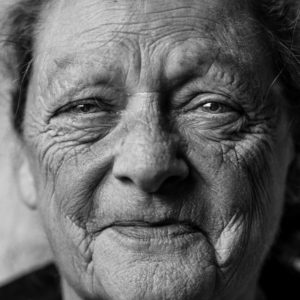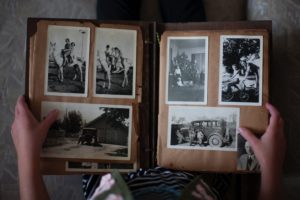Sharing Happy
Is it possible to share our happiness? More specifically, is it possible for me to share the things that make me happy with others? I ask because my immediate answer to the first question is yes, of course. My immediate answer to the second question is no. Well, rarely. Let’s say rarely.

Martin Seligman makes a statement in his book, Authentic Happiness, I’ve been thinking about for several weeks. He writes that seeking out others to share our happiness with, and telling them how much we value the moment “is the single strongest predictor of level of pleasure.”
I’ve struggled all my life with an intense desire to share my happiness with loved ones and an inability to do so.
It works well the other way. For me, one of the joys of connection is allowing myself to become enlarged by the presence of others. I’ve always loved being exposed to what those around me enjoy: new music, new movies, new books, new ideas and new ways of doing things. All my close relationships have made me bigger and contributed to who I am in this moment, and I’m deeply grateful for it.
But I rarely seem to find reciprocity. Or flexibility. Or curiosity. Or something. I’ve never been able to figure out why. Is it that the things that make me happy are stupid, or inappropriate, or boring? Is it something about me? Is it that some people don’t value sharing emotional experience and joy and I have a genius for wanting to connect with those kinds of people?

Maybe some people have no happiness to share?
My inability to share my happiness and enjoyment with others has left me with a painful feeling of guilt, as though it’s disloyal or a betrayal if I enjoy something others can’t. Or won’t. Guilt turns me inward; I pursue my happiness in secret, stifling my longing to share it, struggling with feelings of rejection and resentment. I show up in their lives to share. Why don’t they want to with me? Am I needy? Demanding?
Around and around I go as I think about this, getting nowhere useful.
When I encounter a hairball like this in my life, I look at it through the lens of power dynamics. The fact is I know what makes me happy. I value experiencing the happiness and delights of others. Both are entirely within my power. I do long to share my own happiness, but sharing requires the participation of another, and that is not in my power.
Guilt and shame are not useful burdens to carry around. My happiness takes nothing away from anyone else. Making myself unhappy doesn’t ease someone else’s unhappiness. Hiding my happiness doesn’t seem like a useful choice. As for resentment, holding on to that only hurts me.
Another problem with my strong desire to share my own happiness is it reinforces people pleasing. I tie myself into knots thinking about exactly the right timing and approach in order to get someone else to be interested in sharing something I enjoy. Or I tie myself into another kind of knot trying to optimize what I think makes others happy, regardless of the personal cost to myself. If we can’t share happiness, and if something other than what I have to offer gives someone happiness, I disappear as much as I can so there’s maximum room for whatever I think is most wanted.

It sounds so easy. Find someone to share our happiness with. Tell them what the moment means to us. Enjoy the pleasure.
What am I doing wrong?
As I think about this, I wind up in a familiar place — with myself. Exploring happiness during these last weeks has made me newly conscious of my experience. Over the last couple of decades, I’ve gradually learned to befriend and care for myself, replacing old habits of self-destruction and self-loathing. I see now much of what I’ve done for myself, rather than waiting for someone to read my mind and do it for me, or give me permission to do what gives me pleasure, have been the same things that make me happy. It’s just not a word I’ve felt very friendly with or applied to myself before.
I’ve thought about all this during my Thanksgiving break. I spent hours and hours cutting greens and making holiday decorations. I thoroughly enjoyed it, and it was extremely stressful and uncomfortable. I enjoyed it because I love working with my hands, giving gifts, and sharing (there’s that word again) the glory of our evergreen trees and the spirit of the season. It was stressful and uncomfortable because I feel so much anxiety about sharing those things that give me such pleasure. Would I be making people uncomfortable, imposing a gift return obligation? Were the decorations ugly or inappropriate in some way? Would people already have wreaths and decorations and have no use for them? Were they too much? Too little? People probably can and have made or bought something much better.
This is familiar territory, as it’s always the background to posting on this blog. I push through it when I’m writing, but I usually talk myself out of giving spontaneous creative gifts. I decide whatever I want to do is a dumb idea, a waste of time, and, frankly, it’s too scary to be that vulnerable and risk rejection, misunderstanding, or making someone uncomfortable.
It’s too scary to share the things that make me happy.
Sigh.
Working with Seligman’s book and thinking about happiness has changed things. I decided I was going to do something I love to do, share my enjoyment with others, and damn the consequences, or, better yet, completely let go of outcomes. Even if what I made gets thrown directly into the fireplace, what have I lost? My enjoyment of gathering, making, and giving remains intact. My happiness and expression of love are still free in the world instead of hidden and imprisoned in my own heart.




